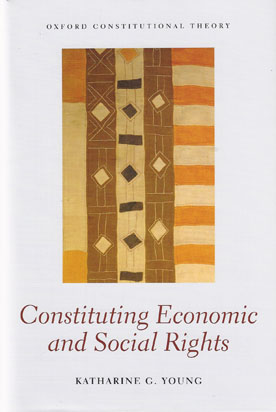
Food, water, health, housing, and education are as fundamental to human freedom and dignity as privacy, religion, or speech. Yet only recently have legal systems begun to secure these fundamental individual interests as rights.
Drawing on constitutional examples from South Africa, Colombia, Ghana, India, the United Kingdom, the United States and elsewhere, the book examines innovations in the design and role of institutions such as courts, legislatures, executives, and agencies in the organization of social movements and in the links established with market actors.
This comparative study shows how legal systems protect economic and social rights by shifting the focus from minimum bundles of commodities or entitlements to processes of value-based, deliberative problem solving.
Theories of constitutionalism and governance inform the potential of this approach to reconcile economic and social rights with both democratic and market principles, while addressing the material inequality, poverty and social conflict caused, in part, by law itself.